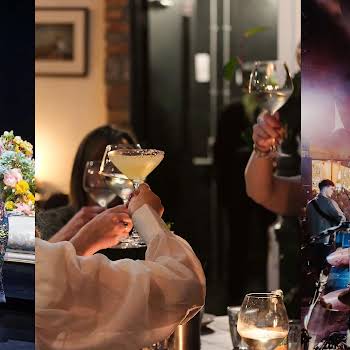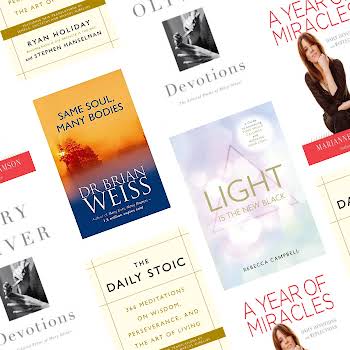
By Jennifer McShane
08th Jul 2017
08th Jul 2017
I hate to hear anyone sneer at the thought of what is deemed a ‘beach read,’ as if there’s something wrong with choosing a story in that category?as you relax on your sun lounger. Your precious holiday time should simply be used to read a story you’ll remember when you get home, whether it be based on that predictable-yet-comforting happy ending or a darker vision of a dystopian future. We’ve chosen seven reads so good, that they’ll linger well after your holiday. ?

When a story tackles a difficult, dark subject, this is often its first point of criticism. It isn’t easy to write about a topic? – a societal taboo – that will chill and revolt the reader in such a poised manner, but author Amy Engel, manages to do this with ease in her first novel for adults, The Roanoke Girls. Fifteen-year-old Lane Roanoke has heard of the infamous ?Roanoke Girls? all her life but then, after her mother’s tragic death, she is sent to live with her estranged maternal grandparents at the family’s rural ranch. Over the course of a humid summer, she gets to live the life of all the mysterious Roanoke girls before her, but the dark truth about them is slowly revealed: every ?girl? either runs away or dies. Lane must then decide and deal with the consequences that come with enduring this terrible legacy. This atmospheric, haunting book isn’t an easy read, but it is beautifully written and compelling, regardless.

Lisa Carey’s The Stolen Child‘does what few tales dare to – get inside your head and refuse to leave. Set on a mysterious windswept island off the coast of Ireland, St Brigid, the story centres on its intriguing community and follows two sisters: Rose, blessed with beauty, and disfigured Emer, who was blinded in one eye by a swarm of bees and who has a curse – she can harm with a simple touch of her hands. The islanders are stuck in the past, their way of life under threat as they are forced to move to the mainland, but the arrival of Brigid, a stranger who befriends the sisters, will change everything they know. This is a captivating, eerily beautiful tome; full of mistrust, dark magic and superstition.

Not the children’s tale, but rather the book based on the story of?Edvard Munch’s infamous painting, The Scream. While familiar with the painting, I knew nothing of its creator or any story behind it. Lisa Stromme’s captivating debut novel The Strawberry Girl?changed all that. It’s summer 1893 in the Norwegian fishing village of Asgardstrand, and local girl Johanne Lien becomes a maid for the Ihlen family. She soon becomes fascinated by aspiring artist Munch and his powerful art. This is a creative mix of fact, and fiction and readers should find themselves swept up in this intriguing story. Art lovers will adore it and those that know nothing about art will wish they knew more.

Feel-good doesn’t come much better than Patricia Scanlan’s Orange Blossom Days, set around a Spanish holiday apartment complex just opened by new owners. Its guests arrive to get away from it all, but as friendships form and lives intertwine, they’ll soon discover it’s not quite the holiday heaven they expected. Classic Scanlan and so, so good.

Erin Kelly’s He Said/She Said?is a clever, compulsive read. In 1999, at a music festival during an eclipse, young couple Laura and her boyfriend Kit witness an apparent attack. Laura knows she saw something terrible; she knows it is rape. The man denies it and Laura, in a panic, tells a white lie. It’s an action that causes four lives to be irreversibly changed. Fifteen years on, and now married, both Laura and Kit are haunted by the events of that night – Laura has never revealed her secret. But then Beth, the victim, shows up on their doorstep long after the courtroom drama is over. Who’s lying and who’s telling the truth? And did Jamie, the attacker, really commit the crime?

There’s something energetic and refreshing about Zadie Smith’s Swing Time, and this is because she writes with such musicality – the fact that she is a talented jazz singer might have something to do with it. And so it seems fitting that music and dance take centre stage in her first novel since 2012’s NW. We begin in 1982, where an unnamed narrator meets Tracey, ?another brown girl? in North West London arriving for dance class. Both dream of being dancers, but only one, Tracey, has true talent, while the other has ideas: ideas about music, black bodies and black dancing, and what it means to be free. Their story takes us on their journey of rivalry, love and loathing, until one day, the two leave each others? lives.

It’s the summer of 1965, and one July morning in Queens, New York and in Emma Flint’s Little Deaths Ruth Malone wakes to find a bedroom window wide open and her two young children missing. They are soon found killed and she is the presumed suspect. The story was inspired by a real case and a crime similar in nature where blame was imposed on the mother. Ruth is watched, and judged, by everyone around her. And what starts out as a crime story is really a study of the treatment of women in 1960s America where Ruth, as a woman, is vilified for everything she does. For being a single mother, for wearing makeup, for having lovers, for not showing grief the right way – she’s condemned?before any possible evidence has been looked at.























